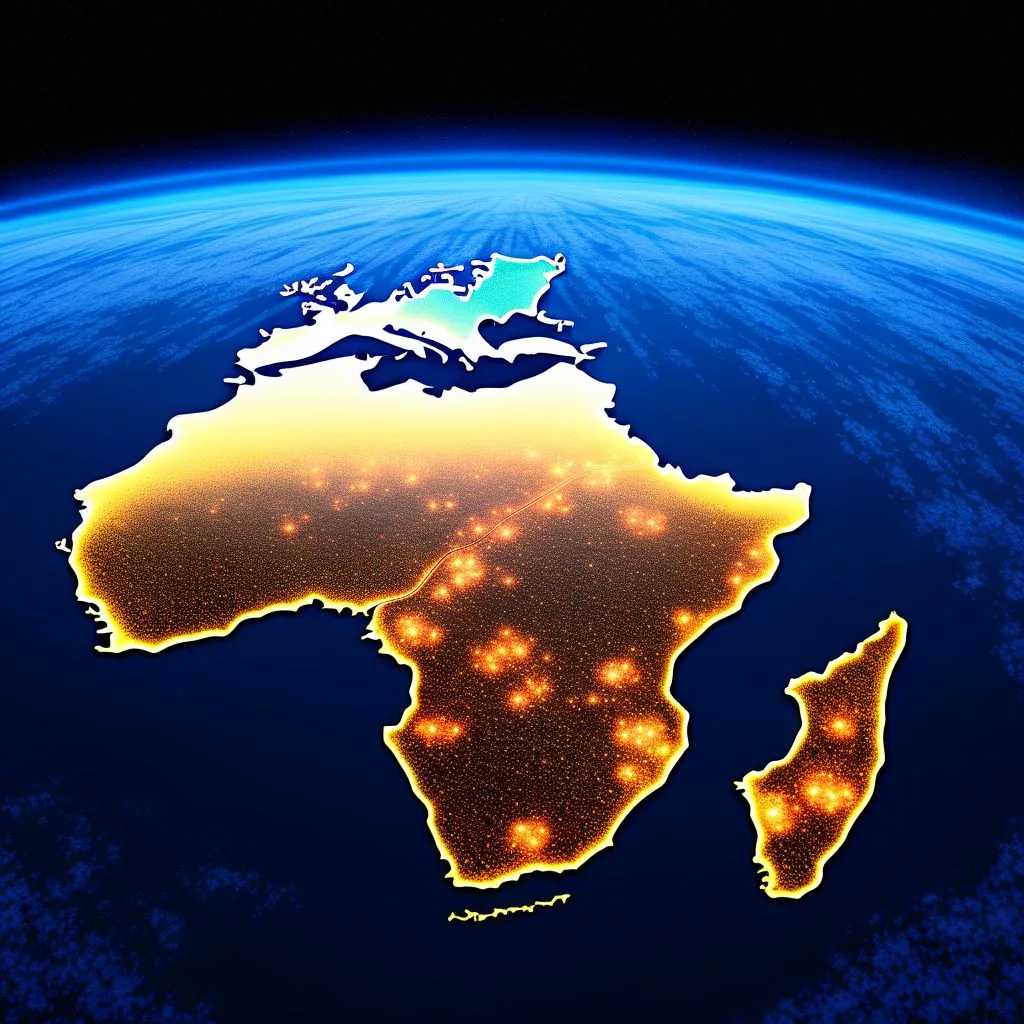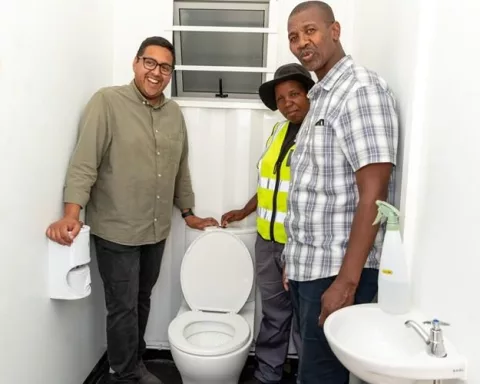The entry of Starlink, Elon Musk’s satellite internet service, into South Africa is facing tough challenges due to local laws that require foreign companies to partner with local investors. Critics argue that these rules slow down internet access, especially in rural areas. Supporters, like former politician Tony Leon, believe that easing these regulations could boost technology and improve relations with the U.S. However, Starlink recently withdrew its application to operate in the country, raising concerns about how South Africa can attract foreign investment while addressing historical inequalities. This debate highlights the struggle between supporting local interests and embracing new technology for a better future.
What are the challenges facing Starlink’s entry into South Africa?
Starlink’s entry into South Africa faces significant challenges, primarily the Broad-Based Black Economic Empowerment (BEE) regulations. These require foreign companies to have local shareholding, which has been criticized for deterring investment and limiting high-speed internet access in the country.
The ongoing debate about Starlink’s potential launch in South Africa encapsulates larger discussions about technological progress, regulatory environments, and international relations. Tony Leon, former leader of the Democratic Alliance (DA), has recently voiced his support for Elon Musk’s satellite internet service. His endorsement underscores both the promise that Starlink presents for South Africa and the intricate barriers that currently obstruct its entry.
Technological Promise and Diplomatic Tensions
Tony Leon recently discussed South Africa’s diplomatic relationship with the United States in an interview with eNCA, referencing former US President Donald Trump and billionaire Elon Musk. He emphasized the technological advancements that Starlink could bring to South Africa, a nation still struggling with patchy internet access. Despite the country’s relatively small market size, Leon noted Musk’s eagerness to introduce Starlink. He pinpointed domestic regulations for foreign businesses as the main impediment to Starlink’s arrival. Leon argued that loosening these restrictions could yield dual benefits: an upgraded technological framework and improved relations with Musk, whom he described as “Trump’s whisperer.” According to Leon, this could be a straightforward win for South Africa.
One of the most divisive issues in this debate centers around South Africa’s Broad-Based Black Economic Empowerment (BEE) requirements. These regulations mandate that nearly a third of any foreign-owned company must be locally held. Musk has openly criticized this condition, labeling it a “racist law.” The South African Institute for Race Relations has echoed Musk’s concerns, arguing that such restrictions deter foreign investment, limit job creation, and obstruct the availability of affordable, high-speed internet in rural areas. The organization has urged lawmakers to reconsider the policy’s impact on economic growth.
Government and Regulatory Challenges
Last year, Minister of Communications and Digital Technologies Solly Malatsi engaged in discussions with Musk to explore potential regulatory adjustments. Malatsi acknowledged Starlink’s ability to expand digital access without requiring governmental infrastructure investment. He stressed the need for a balanced approach that promotes market competition while ensuring fairness and compliance. Despite these talks, SpaceX recently withdrew its application to operate in South Africa, citing global policies that exclude local shareholding as a significant barrier. In an effort to keep the dialogue open, SpaceX filed a formal appeal to the Independent Communications Authority of South Africa (ICASA), urging officials to reconsider the country’s BEE legislation.
The withdrawal of SpaceX’s application has far-reaching consequences. High-speed internet access remains a pressing issue in South Africa, particularly in rural regions where infrastructure is minimal. Starlink’s exit raises questions about how the country will balance economic empowerment policies with the need to attract global tech investment. This deadlock also highlights a broader issue: the tension between safeguarding local interests and inviting foreign innovation.
Historical Context and Future Outlook
South Africa has a complex history of dealing with economic empowerment. The BEE regulations are designed to address the systemic inequalities left by apartheid. However, the rapidly changing global economic landscape calls for a reassessment of these policies. The challenge is to create a framework that both respects historical injustices and embraces future opportunities.
Countries have historically faced similar challenges. After World War II, Japan pursued aggressive industrial policies to foster local growth while remaining open to foreign technologies. This strategy was instrumental in transforming Japan into a technological leader. South Africa now finds itself at a similar crossroads. The nation must decide whether to adjust its regulatory environment to welcome global players like Starlink or risk lagging in the digital age.
From a cultural and artistic perspective, the debate over Starlink also touches on broader themes of connectivity and isolation. Throughout history, art has often grappled with these themes. The Renaissance, for example, was marked by unprecedented connectivity in Europe, driven by advancements in printing technology. This surge in information-sharing spurred artistic and scientific innovation. Similarly, the advent of satellite internet like Starlink has the potential to bridge digital divides, ushering in a new era of global connectivity and creativity.
Tony Leon’s advocacy for Starlink in South Africa ignites a multifaceted dialogue that spans technological progress, regulatory challenges, and international diplomacy. While the BEE regulations aim to rectify historical injustices, their current form may be impeding foreign investment and technological advancement. As South Africa navigates this intricate landscape, the decisions made will have repercussions beyond its borders, influencing global discussions about economic empowerment and technological innovation. The ongoing debate over Starlink serves as a poignant reminder of the complexities and opportunities that arise when local policies intersect with global ambitions.
“`markdown
FAQ: The Debate Over Starlink’s Entry into South Africa
What are the main challenges Starlink faces in entering South Africa?
Starlink encounters significant challenges primarily due to the Broad-Based Black Economic Empowerment (BEE) regulations, which require foreign companies to have local shareholding. Critics argue that these regulations slow down internet access, particularly in rural areas, and deter foreign investment.
Why did Starlink withdraw its application to operate in South Africa?
Starlink withdrew its application due to the local BEE regulations that mandate local ownership for foreign companies. SpaceX cited these regulations as a major barrier, which conflicts with their global policies that do not accommodate such requirements.
What has been the response from local politicians regarding Starlink’s potential impact?
Former politician Tony Leon has publicly supported the entry of Starlink into South Africa, arguing that it could enhance technological progress and improve diplomatic relations with the U.S. He believes that easing local regulations could lead to significant benefits for the country’s infrastructure and economy.
How do the BEE regulations impact foreign investment in South Africa?
The BEE regulations aim to address historical inequalities left by apartheid by promoting local ownership in foreign companies. However, many argue that these regulations deter foreign investment, hinder job creation, and limit access to essential services like high-speed internet.
What are the broader implications of the debate over Starlink for South Africa?
The debate highlights the struggle between supporting local interests through regulations and embracing new technology that can drive economic growth. The outcome will have lasting effects on how South Africa positions itself in the global digital landscape and its ability to attract foreign investment in the future.
How does this situation reflect South Africa’s historical context in terms of economic policies?
South Africa’s BEE regulations are intended to rectify past injustices; however, the rapid global economic changes necessitate a reassessment of these policies. The challenge lies in developing a framework that balances historical considerations with the need for innovation and foreign investment, similar to strategies employed by other countries in the past.
“`












